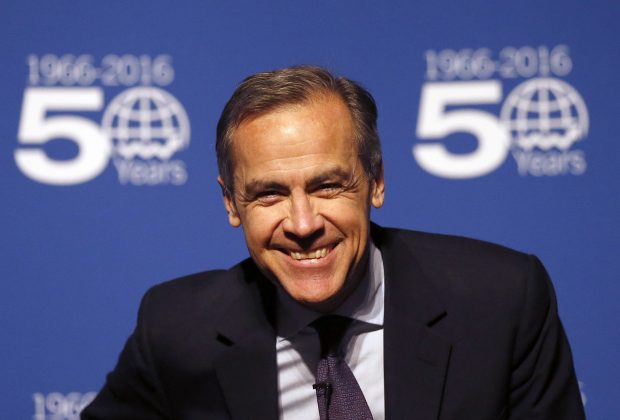How does Mark Carney feel about his ‘Project Fear’ warnings in the run-up to the referendum? His mild-mannered nemesis Jacob Rees-Mogg probably wouldn’t have been prepared for the Bank of England Governor’s choice of words to describe his mood. Carney was ‘serene’ about how he handled himself before Brexit, he told the Treasury Select Committee this afternoon. But Carney didn’t stop there: he also did his best to bait Rees-Mogg, who has clashed with Carney several times before at these hearings, suggesting the session was being wasted ‘going through counterfactuals’. He then went on to slap down any suggestion from the Tory MP that his warnings had been ‘dire’. Yet where Carney is likely to have really riled his critics at this afternoon’s meeting was in suggesting he should be thanked, rather than criticised for his Brexit conduct.
The Bank’s Governor was adamant that his warnings in May, when he upped the stakes by indicating Brexit would be followed by a recession, weren’t misjudged. And Carney was also keen to say his conduct in the aftermath was spot on, too. In the weeks after the vote, Carney opted to relax the capital requirements for the commercial banks, which enabled them to lend a lot more freely. And in August, the Bank took a more headline-grabbing step in slashing interest rates to a new low; it also stepped up quantitive easing, pumping hundreds of billions into the economy, and went on a bond-buying spree towards the end of last month. The latter of these measures, in particular, led some to suggest the Bank had rattled financial markets and was risking panicking, rather than reassuring, investors. Yet Carney made it clear that, given the chance, he’d do it all again.
Instead of going on the defensive, the Governor said it was precisely some of those steps taken by the Monetary Policy Committee that ensured the prospect of a recession was no longer on the cards. Carney isn’t one for offering easy-to-understand assessments. But when he was asked a question couched in a language more familiar to him (‘Has your probability-weighted, average expectation of a technical recession, gone up or gone down since the vote?’), he offered up the goods:
‘Subsequent to the actions of the MPC it (the prospect of a recession) has gone down’
Carney wants us all to know that he and the Bank of England should be applauded rather than criticised for their referendum conduct. And that without the Bank’s quick-thinking, Britain could be staring down the barrel of a recession.







Comments